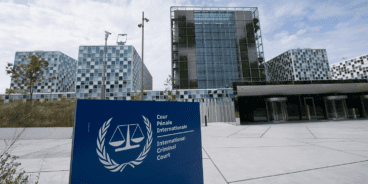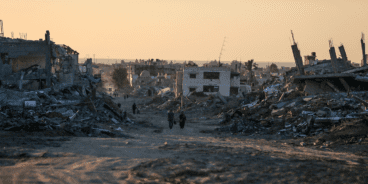
The World Day for International Justice and the 20th Anniversary of the Rome Statute
Today the Global Centre for the Responsibility to Protect celebrates the World Day for International Justice and the twentieth anniversary of the Rome Statute of the International Criminal Court (ICC), which was adopted on 17 July 1998. This momentous treaty established the first permanent international court for the prosecution of individuals accused of war crimes, genocide and crimes against humanity. Two decades later the ICC is now an integral part of the international justice system with 123 States Parties. We also acknowledge Chief Prosecutor Fatou Bensouda’s comment that the ICC is “the legal arm of the responsibility to protect.”
Over the past twenty years the ICC has brought notorious perpetrators of mass atrocity crimes to justice. In 2012 Thomas Lubanga Dyilo was the first person found guilty of conscripting child soldiers in the Democratic Republic of Congo. During 2016 judges found Ahmad Al Faqi Al-Mahdi guilty of war crimes when his forces attacked global cultural heritage, destroying historic mausoleums and a mosque in Timbuktu, Mali. In these and other cases the Court has helped establish that any person, regardless of rank or office, can be held accountable for crimes that violate international law and stain the conscience of humanity.
To date the ICC has investigated eleven situations and is conducting preliminary examinations of another ten. The Court has issued thirty-two arrest warrants, convicted eight people and issued two acquittals. Although the Court’s critics emphasize its delays and shortcomings, there is no doubt that the ICC is slowly but steadily undermining the impunity that past perpetrators relied upon.
The impact of the ICC reaches beyond courtrooms in The Hague. By implementing the principle of universal jurisdiction and adopting domestic legislation compatible with the Rome Statute, states are demonstrating a wider commitment to protecting their populations from mass atrocity crimes. Over the last two decades a variety of domestic and regional mechanisms, as well as ad hoc and hybrid tribunals, have all contributed to strengthening international justice. We also welcome today’s activation of the ICC’s jurisdiction over the crime of aggression which is invoked in Article 39 of the founding Charter of the United Nations.
Finally, on this World Day for International Justice we should remind ourselves that today is not just about treaties, indictments and institutions. It is also about honoring the victims of atrocities. It is about Yazidi and Rohingya survivors of genocide. It is about those vulnerable civilians who continue to face crimes against humanity in Syria, South Sudan and elsewhere and who are still waiting for their day in court. It is about those who are unable to sleep at night because of the threat of barrel bombs or chemical weapons being dropped on their homes, and for those who face torture or disappearance. Today is for all those who endure persecution, not for anything they have done but because of who they are.
International justice is not only punitive, it is preventive. Holding perpetrators of mass atrocity crimes accountable for their actions plays a crucial role in inhibiting recurrence of these crimes. On this World Day for International Justice we reaffirm our belief that legal accountability remains an essential antidote to impunity and injustice.
Related Publications


